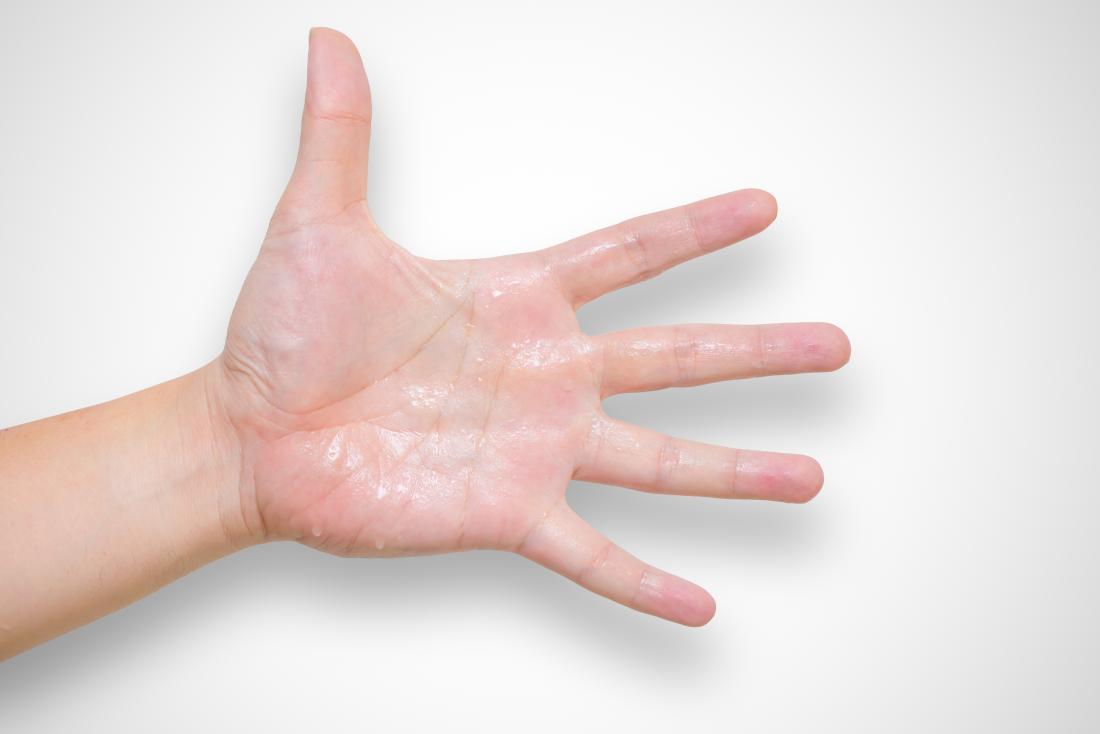Understanding the Source of Excessive Sweating and Its Influence On Every Day Life
Too much sweating, also known as hyperhidrosis, is a problem that influences a significant part of the populace, yet its hidden reasons and effects on daily working stay rather enigmatic. While it is generally understood as a physiological reaction to control body temperature level, the triggers for too much sweating can differ extensively amongst people, including not just physical aspects but likewise emotional and emotional components. Additionally, the effect of this problem prolongs beyond mere pain, usually influencing social interactions and total top quality of life. By diving into the root creates of hyperhidrosis and exploring its diverse effects, a much deeper understanding of this pervasive issue can be obtained, shedding light on the complexities that individuals coming to grips with too much sweating navigate on an everyday basis.
Physiology of Sweat Glands
The regulation of sweat manufacturing, a crucial physical procedure, is mostly controlled by the activity of gland distributed across the body. Sweat glands are categorized into two major types: eccrine and apocrine glands. Eccrine glands are the most various and are found in nearly all locations of the body. They play a crucial duty in thermoregulation by producing a watery liquid onto the skin's surface area, which vaporizes and assists cool the body down. In comparison, apocrine glands are concentrated in locations rich in hair roots, such as the underarms and groin, and their secretions are thicker and milky in appearance.
When the body temperature rises, either as a result of physical activity, high temperature levels, or emotional stress and anxiety, the nervous system sets off the sweat glands to generate sweat. This sweat is made up primarily of water and electrolytes like sodium and chloride. The procedure of sweat manufacturing is vital for maintaining the body's internal temperature level within a slim, ideal array, highlighting the critical role sweat glands play in human physiology.
Triggers for Excessive Sweating
In recognizing the origin causes of extreme sweating, it is critical to recognize the triggers that can lead to this physical response. Physical physical effort, high temperature levels, and spicy foods are likewise known to cause extreme sweating in individuals susceptible to this condition.
Furthermore, drugs such as some antidepressants, opioids, and certain supplements can additionally serve as triggers for hyperhidrosis. Understanding these triggers is crucial in handling excessive sweating successfully - How to stop sweaty hands. By identifying and resolving the particular triggers that motivate excessive sweating in a specific, healthcare providers can establish personalized treatment strategies to reduce this condition and enhance the individual's lifestyle
Medical Conditions Associated
Connected with too much sweating are different medical conditions that can exacerbate this physiological response. One common problem is hyperhidrosis, a problem defined by extraordinarily boosted sweating that exceeds the body's thermoregulatory needs. This can manifest in focal locations like the palms, soles, underarms, or face, affecting an individual's lifestyle because of social embarrassment and pain.
Moreover, endocrine disorders such as hyperthyroidism, diabetes mellitus, and menopausal hot flashes can additionally lead to too much sweating. Hyperthyroidism triggers an overflow of thyroid hormones, increasing metabolic rate and setting off sweating.
Moreover, infections like endocarditis, hiv, and consumption have actually been connected with evening sweats, a common signs and symptom understood to interfere with sleep and affect overall wellness. These clinical problems highlight the diverse series of underlying aspects that can contribute to excessive sweating, necessitating detailed analysis and monitoring by health care specialists.
Emotional and emotional Aspects

Effect on Social Interactions
Too much sweating can have extensive results on a person's capability to involve comfortably in social interactions. The visible indications of sweat stains or damp spots on garments can bring about humiliation and self-consciousness, triggering people to withdraw from social situations. This withdrawal can affect partnerships, limit social activities, and prevent personal and professional development.

Additionally, the anxiety and self-confidence problems originating from excessive sweating can affect communication and interpersonal abilities. Individuals may have a hard time to concentrate on discussions, take part in team tasks, or express themselves confidently. This can result in feelings of isolation and solitude, as social connections end up being challenging to preserve.
Final Thought

While it is frequently recognized as a physiological feedback to control body temperature, the triggers for too much sweating can vary widely amongst people, including not just physical factors yet emotional and also psychological elements. By diving into the origin triggers of hyperhidrosis and exploring its multifaceted results, a deeper understanding of this pervasive concern can be gotten, shedding light on the intricacies that individuals grappling with excessive sweating browse on a daily basis.
Physical physical effort, high temperature levels, and spicy foods are also recognized to trigger too much sweating in individuals vulnerable to this condition. By identifying and resolving the particular triggers that prompt extreme sweating in an individual, medical care suppliers can develop tailored treatment strategies to minimize this problem and enhance the person's top quality of life.
Too much sweating can have profound results on an individual's capability to involve easily in social communications.